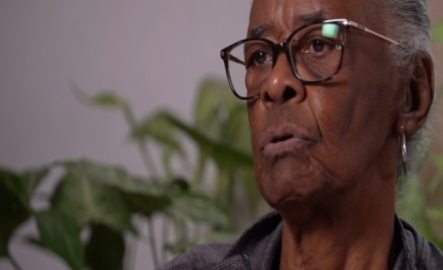Ideally, a plate reading the words ‘welcome to LA’ or whichever place one is driving to is the unofficial welcome address from any city, but in Africa, culture does this welcome differently.
In West Africa’s Nigeria are three wise men, often referred to as Agba Meta or Aro Meta. They are a statue of three white-cap leaders of Lagos situated in Lagos. The idea to bring to life a visual image of these ancestors was expertly conceived and built by the renowned Bodun Shodeinde, who holds the highest honor in the Eko greeting tradition. The statue is over 12 feet high and was constructed in 1991.
According to legend, it was built and put on a tall pedestal to greet visitors to the city of Lagos. Three white cap chiefs, clad in white wraps knotted across their shoulders and with clenched right fists are shown in the welcome to Lagos artwork, representing the strong conviction in the superiority of the right hand over the left. This is not a coincidence since the left hand, which is frequently used for unpleasant duties and jobs, is despised in Yoruba culture while the right hand stands for acceptance and respect.
The person on the right extends his fist forward into the air, the middle figure holds his right fist forward with a tiny downward angle, and the figure on the left pulls his two fists together, touching softly in the air. Through this sculpture, Shodeinde, the artist, represented the highest honor possible in the Eko greeting custom.
The statue was initially positioned in 1991 by the regime of Colonel Raji Rasaki across from the Ojodu Berger bus stop at the point of entry into Lagos from the Ibadan end of the highway. Even at its inception, controversy surrounded its stance because many people were opposed to it for various factors.
Some people observed that the white cap chiefs didn’t appear friendly, especially given that they were standing next to the words “This is Lagos, the state of aquatic splendor.” There was another myth that said the frequent accidents at the spot were caused by a mystical connection to the monument.
Coincidentally, the constant accident cases moved to the region of their new location. Once more, the elders’ adversaries were hunting for a way to eliminate them. The opportunity actually offered itself when the sculptures were once more burned down during the fuel subsidy protests in Nigeria.
While the mysteries surrounding the movement of the statue continued, the statues were eventually set on fire in the middle of the night by some unidentified individuals in 2004. Unfazed, the state government rebuilt the magnificent piece of art while searching for a new residence for the “elders” next to the Michael Otedola Estate.
And to this day, irrespective of the issues surrounding its location, it serves as a welcome artifact to persons trooping into the city of life, Lagos.
In Africa, Nigeria is not the only country with welcoming statues like the Aro meta. Close to it in Ghana, in the country’s central region sits another trio known as ‘the three legends’ and more of that is scattered all over the country and generally the continent.
Greeting is of cultural importance in Africa and it is therefore not surprising that in Nigeria a whole statue was erected to greet indigenes and tourists who commute in the city of Lagos.










